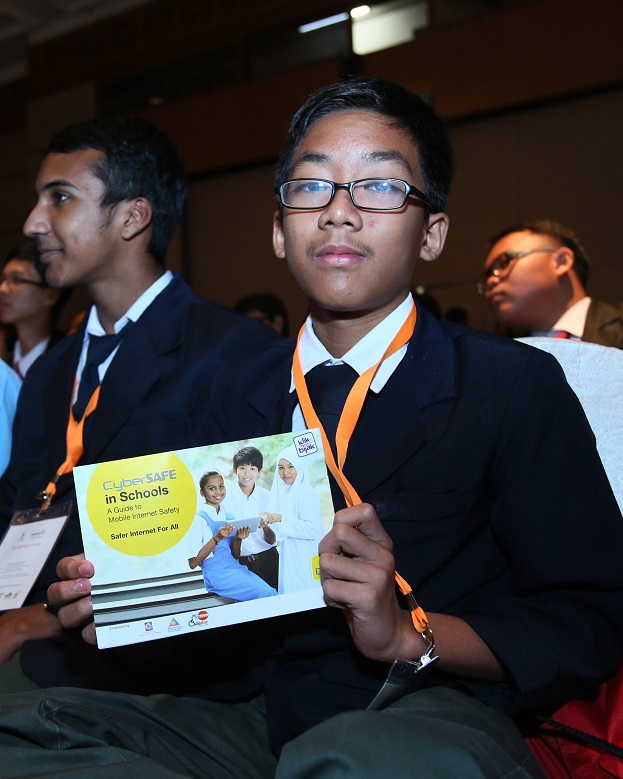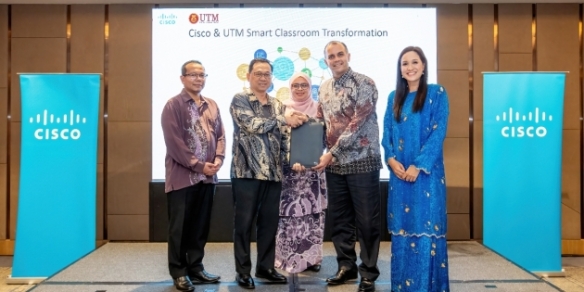Cybersafety: Malaysian schoolkids know ‘why’ but not ‘how’
By Digital News Asia November 27, 2013
- 4 in 10 parents have never spoken to their children on the need to protect themselves online
- 27% say they have been bullied online; 49% know of someone who has been bullied online

AN extensive survey of nearly 10,000 Malaysian schoolchildren showed that most were aware of the importance of safe online habits, but did not know how to do so.
In the survey, 88% of students said it is important to learn ways to keep themselves safe online but 38% admitted to not knowing how to.
The survey also revealed that four in 10 parents have never spoken to their children on the need to protect themselves online, with less than half admitting to not having parental control. Additionally, a third of parents did not impose rules for Internet usage, it was found.
The Safety Net – Growing Awareness Among Malaysian Schoolchildren on Staying Safe Online survey gathered the opinions of 9,651 students from 460 schools across all states in Malaysia which participated in DiGi Telecommunication’s CyberSAFE in Schools workshops, carried out from April 26 to Oct 12.
It is the single largest survey in the country that gauges schoolchildren’s level of awareness and understanding of cyber-safety issues; and their ability to safeguard themselves against online risks, DiGi and its CyberSafe partners said in a joint statement.
Results of the survey were released at the recent CyberSecurity Malaysia Awards, Conference and Exhibition (CSM-ACE 2013).
“Beyond creating awareness, we’ve leveraged on our reach to students in 460 schools nationwide to better understand their usage and behavioural patterns, and knowledge of cyber-safety,” said DiGi chief strategy and corporate affairs officer Christian Thrane.
“The results have given us a repository of information, the most comprehensive collation of statistics on the topic in the country, as a reference to better address real needs.
“The Internet brings substantial social, economic, educational and developmental benefits to children, youth and adults. At the same time, we are aware of rising risks from abuse of the internet associated with greater access.
“It is therefore important for us to step up the education on cyber-safety, particularly among our … children to fuel digital resilience,” he added.
DiGi’s CyberSAFE in Schools is a smart public-private partnership initiated by the Ministry of Education, DiGi and CyberSecurity Malaysia to spread awareness and equip students and educators with the ability to enable a family-friendly Internet experience through education.
“The Internet and broadband connectivity have literally brought the world to our children, and as technologies converge, the opportunities are endless,” said Shamsuddin Hassan, Deputy Director of the Educational Technology Division at the Ministry of Education.
“In order to ensure that the next generation reaches their greatest potential, we must ensure that they have access to a wealth of educational information in an environment that protects their personal information, physical safety, and healthy mental development,” he added.

Cyber-bullying
Based on the polls, 68% of school-children have access to the Internet at home. Of this, a significant number of them spend an average of eight hours a week on the Internet and 68% used it primarily for social networking purpose.
More than half said that they were first introduced to the Internet by their family members or relatives. Some of the key highlights from this survey include:
On awareness of cyber-threats, 27% of students admitted to having been bullied online while 13% of students said they are still being bullied online today. The survey also recorded 49% of students saying they know of someone who has been bullied online.
The most common types of online bullying recorded are sending or receiving nasty messages, being called mean names and having their online accounts hacked. The report highlighted that a significant number of students who have been bullied turn to their parents, siblings and friends for help while 6% of students admitted to keeping it to themselves.
Also, 32% of school-children said they have only one password for all their online accounts, making them an easy target for abuse; while a third confessed to not making changes to their password even though they know it is weak.
“CyberSecurity Malaysia (CSM) realises the importance of reaching out to the younger generation and educating them about cyber-security; hence, we developed the CyberSAFE programme, which is short for Cyber Security Awareness For Everyone,” said its chief executive officer Dr Amirudin Abdul Wahab.
Since its launch in September 2010, “more than 500 teachers from all over Malaysia have been trained as CyberSAFE Ambassadors, which means they are equipped with sufficient know-how to raise cyber-security awareness in schools,” he added.
Related Stories:
Kids pulling the wool over parents’ eyes: Cyber-safety study
The most dangerous virtual playground for kids: Social networks, and porn
1-in-3 Malaysian kids victims of cyber-bullying: Microsoft survey
For more technology news and the latest updates, follow @dnewsasia on Twitter or Like us on Facebook.


